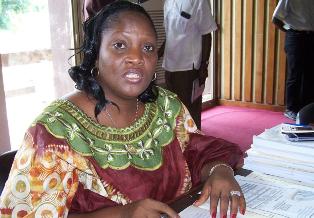Electoral reform is an imperative

The Elections Coordinating Committee (ECC) struck an important cord at a recent stakeholders’ conference in Monrovia, reiterating the need for reform of our electoral laws, beginning with the Constitution of Liberia.
The ECC in a statement specifically points to Article 83 (C) of the Constitution of Liberia, which delegate judicial powers to the National Elections Commission and places additional and unnecessary burden on the NEC besides its original mandate to organize and conduct elections.
Under the theme: “Strengthening Liberia’s Democracy through Electoral Reform” ECC Chair Oscar Bloh argued that no matter how much changes are made within the New Elections Laws of the country in terms of rules and responsibilities of Magistrates, Hearing Officers, Chief Hearing Officer and Board of Commissioners on electoral disputes, the NEC remains the court of first instance for all electoral petitions, which means the Commission has to investigate allegations, hear witnesses, study the evidence, allow legal arguments and so forth before handling down ruling with adverse affects, including delay.
We agree with the ECC proposition on the need to reform our processes and laws in order to conduct peaceful and credible elections in Liberia that would correspondingly promote national reconciliation and sustain peace and economic development.
Elections are one of the key ingredients in fostering participatory democracy and pluralism in our governing system, but when the processes associated with the exercise are found wanting, the present flash points that should not be ignored.
Chairman Bloh observed that elections do not guarantee democracy, but at the same time, they are a fundamental requirement to give legitimacy to any democratic government. He noted that while it is true that elections are grounded in laws, they are equally about perception, and that is why it is important at all times that electoral processes are perceived by voters to be impartial, inclusive, transparent and marked by integrity.
It is due to the perception challenge that it is even more urgent to review and reform the laws governing the process, for what is the essence of laws if they lack convenience or pose perception problem.
We all are witnesses to the ugly experiences from the 2017 Presidential and Representative Elections, when results from the first round of the presidential poll were legally challenged by one of the candidates, leading the NEC to suspend all other activities, pending investigation of the complaint filed.
[bsa_pro_ad_space id=1]
The legal battle was sustained between the NEC and the Supreme Court, while creating economic and political uncertainty from October to December, 2017 with adverse consequences in terms of economic stability.
While another presidential election is five years away, it is about time we take a deep reflection and make those necessary reforms to avoid future embarrassment.
As Chairman Bloh stressed, given human errors, inadequate laws and infrastructural challenges, it is difficult to organize and conduct perfect electoral process in the country, noting that every election creates opportunity for stakeholders to reflect on the electoral process and to review the laws in order to identify challenges and take appropriate measures to addressing them. A stitch in time, it is often said, saves nine.




















